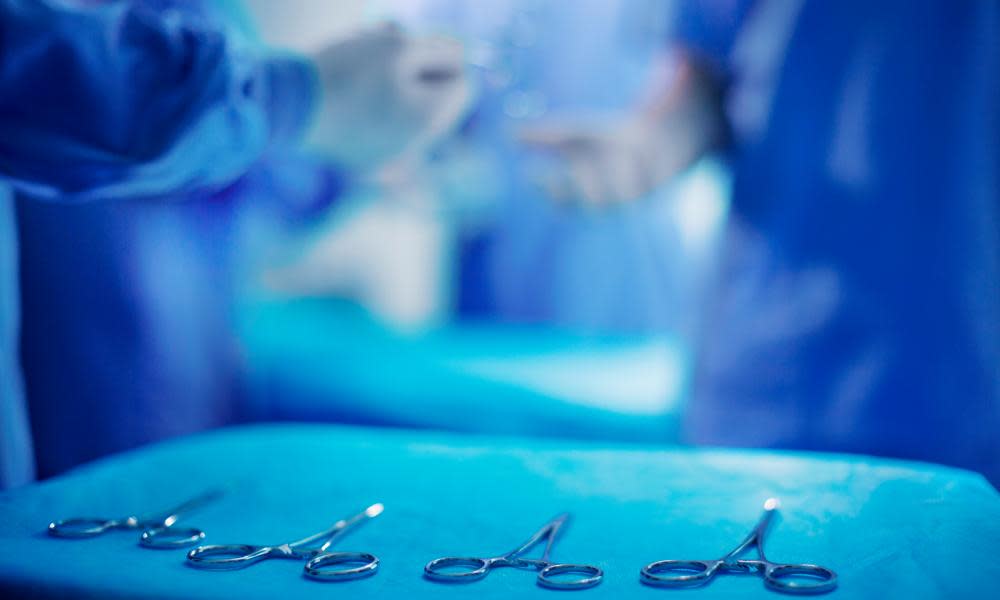The cheap innovations the NHS could take from sub-Saharan Africa

It is often said: “You get what you pay for.” Price stands as proxy for quality, whether it’s a new shirt, a new car or a meal in a smart restaurant. We measure value in pound signs.
Do we get what we pay for in the NHS? Often we pay over the odds for a product or service that turns out to be of poor value. Pharmaceutical companies charge sky-high prices for their drugs, hospital trusts squander thousands on agency staff, and eye-popping interest rates are being levied on private finance deals, to build shiny operating theatres and modern laboratories that should be funded by the state.
We need to be much more imaginative in our approach to obtaining good value for the NHS. That means looking to some unusual sources for inspiration. Take the surgical drill. As a surgeon myself I know how vital this piece of kit is for orthopaedic colleagues when they need to bolt together the splintered femur of a patient knocked off a motorbike.
Surgical drills cost between £20,000 and £30,000 each. Yet they are in essence no different from the ordinary household drills found in millions of homes, which typically cost less than £100.
Why the price difference? Because the surgical drill must be sterilised after each use. That means it must be capable of withstanding a 30 minute dunking in an autoclave – a pressurised steriliser in which steam is heated to 121C (250F). No ordinary drill will keep functioning after intense treatment like that.
Now some inventive engineers have come up with a sterile bag that can be used to seal a household drill so that only the business end – the drill bit and attachment - need to be sterilised, together with the removable cover, after each use.
A surgical drill lasts on average five to seven years. The cost of replacing all those needed in the NHS is estimated at £125m. One London hospital recently placed an order for 11 drills, winning a discount of 30%. The bill still came in at £234,000.
With the frugal version – an adapted household drill wrapped in its autoclavable covering – the cost of replacing the 11 drills, which have been adapted to meet stringent standards required in surgery, is estimated at £18,000 a 92% cost saving.
The adapted drill has been successfully used to treat 30,000 patients so far in 50 hospitals across 15 countries. But here’s the catch. The drills were pioneered and first introduced in the developing world, where the £30,000 price tag on a surgical drill was beyond most hospital budgets.
This is what has made NHS managers pause. How would it look if the health service began importing innovations that are being used in sub-Saharan Africa? Would it trigger headlines saying the NHS is so broke it has to go shopping in the medical markets of Uganda and Tanzania?
There are many more examples of innovations like this. One of the commonest operations in the UK is hernia repair, in which a piece of surgical mesh is stitched into the abdominal wall to strengthen it. The commercial mesh used in the operation costs from £30 to £700 a piece, depending on the type and size of the order.
Yet surgeons working in the developing world have found that mesh – mosquito netting that has been sterilised – works just as well. It costs less than £1 a piece and is prepared and used globally by the charity, Hernia International, which arranges for the netting to be cut, sterilised, sealed and packaged through recognised European sterilisation processes. More than 100,000 hernias are performed each year in the UK, at a cost of more than £3m for the supply of mesh. This could be cut to around £100,000 if we were to move to low cost mesh, a saving of 97%.
Potential cost savings could amount to more than £100m over the next five years
In May this year we dispatched a team comprising Yasser Bhatti, a policy fellow, and surgeons Matthew Prime and Arjuna Imbuldeniya to study the use of the adapted drill and the sterilised mosquito net in Kenya, Uganda and Tanzania. They returned enthused by what they had seen and an NHS trial of the adapted drill is now being planned within London hospitals, subject to the manufacturer, Arbutus, meeting the UK sterilisation standard. If the NHS were to scale up these two simple and frugal innovations, the potential cost savings could amount to more than £100m over the next five years.
The really big gains will come not from using new equipment but doing things in a different way. The Indian organisation Narayana Health streamlined the delivery of heart surgery, eradicating bottlenecks and ensuring staff did what they were best at, cutting the cost of a coronary bypass operation to an average $1,500 (£1,139). This compares with $144,000 in the US, $27,000 in Mexico, $14,800 in Columbia and $13,200 (£10,000) in the UK. And there was no diminution in quality – deaths at 30 days were 1.4% for Narayana health compared with 1.9% in the US.
All health systems are being squeezed by escalating demand and tightening budgets. Soaring healthcare costs are contributing to unsustainable spending. In the past we have exported innovations to the developing world and seen their costs rise. Now they may be able to help us by reversing the flow of innovations – if only we will let them.
Lord Darzi is a surgeon and director of the Institute of Global Health Innovation at Imperial College London. He was a Labour health minister from 2007-9.
Join the Healthcare Professionals Network to read more pieces like this. And follow us on Twitter (@GdnHealthcare) to keep up with the latest healthcare news and views.
If you’re looking for a healthcare job or need to recruit staff, visit Guardian Jobs.

 Yahoo News
Yahoo News 
